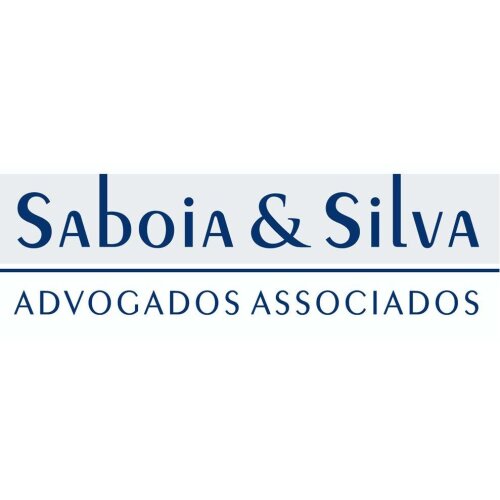Best Equity Capital Markets Lawyers in Brazil
Share your needs with us, get contacted by law firms.
Free. Takes 2 min.
Or refine your search by selecting a city:
List of the best lawyers in Brazil
About Equity Capital Markets Law in Brazil
Equity Capital Markets (ECM) in Brazil refers to the segment of the financial markets where companies raise money by issuing shares to investors. These activities include initial public offerings (IPOs), follow-on offerings, and private placements of equity securities. The ECM in Brazil is mainly regulated by government entities such as the Securities and Exchange Commission of Brazil (CVM) and operates through established stock exchanges like B3 (Brasil Bolsa Balcão). The sector plays a vital role in supporting the fundraising needs of businesses, enabling companies to grow, expand operations, and attract new investors.
Why You May Need a Lawyer
Legal guidance is crucial in Equity Capital Markets due to the complexity and regulatory scrutiny involved. Common situations where you might need a lawyer include:
- Planning, structuring, and executing IPOs or follow-on offerings
- Navigating compliance and disclosure requirements with CVM and B3
- Advising on private placements and venture capital fundraising
- Handling cross-border transactions and foreign investor participation
- Managing due diligence, negotiation of underwriting agreements, and legal documentation
- Addressing shareholder rights, disputes, and corporate governance matters
- Responding to regulatory investigations or enforcement actions
A lawyer specializing in ECM can help protect your interests, reduce legal and financial risks, and ensure that transactions follow all regulatory obligations.
Local Laws Overview
The legal framework for Equity Capital Markets in Brazil is comprehensive and continually evolving. Key aspects include:
- Corporations Law (Law 6.404/1976) - This law establishes the rules for public companies, including registration, disclosure requirements, and corporate governance.
- Securities Market Regulation - The CVM is the primary regulator, overseeing public offerings, registration of issuers, and enforcement of securities laws.
- Listing Rules of B3 - Companies must comply with B3’s listing requirements, which may involve different governance levels such as Novo Mercado, with stricter standards for transparency and shareholder protection.
- Disclosure and Transparency - Brazilian law requires regular publication of financial statements, material facts, and other relevant information to ensure investor protection.
- Anticorruption and Anti-money Laundering - Companies and investors must comply with anti-corruption and anti-money laundering laws during capital raising and investing activities.
- Foreign Investment Rules - Non-resident investors have specific procedures to follow, including registration with the Brazilian Central Bank and local tax compliance.
Frequently Asked Questions
What is an IPO in Brazil?
An IPO, or initial public offering, is when a company offers its shares to the public for the first time on the stock exchange. This process is regulated by the CVM and allows companies to raise significant capital for expansion.
What are the main regulatory bodies for ECM in Brazil?
The Securities and Exchange Commission of Brazil (CVM) and B3 (the main stock exchange) are the primary regulatory authorities overseeing Equity Capital Markets activities in Brazil.
What documents are required for a company to go public in Brazil?
Key documents include the financial statements, offering prospectus, corporate documents, legal opinions, and reports by independent auditors, all required to be submitted to the CVM and B3.
What are the main risks involved in capital market transactions?
Risks include market volatility, regulatory changes, failure to comply with disclosure obligations, potential legal disputes with shareholders, and exposure to enforcement actions from regulators.
What are the corporate governance requirements for Brazilian public companies?
Public companies must comply with governance standards set in the Corporations Law and B3’s listing rules, including independent board members, audit committees, and disclosure of related-party transactions.
Can foreign investors buy shares in Brazilian companies?
Yes, foreign investors can participate in offerings, but must register with the Brazilian Central Bank and follow local tax and regulatory requirements.
How long does the IPO process usually take in Brazil?
The IPO process can take several months, typically ranging from six months to a year, depending on market conditions, company readiness, and regulatory reviews.
What is a follow-on offering?
A follow-on offering occurs when a company that is already public issues additional shares to raise more capital or allow existing shareholders to sell their holdings.
What legal protections exist for minority shareholders?
Brazilian law offers protections such as tag-along rights, mandatory tender offers in certain transactions, and the ability to challenge unfair or abusive acts by controlling shareholders.
What happens if a company breaches capital markets regulations?
Non-compliance can lead to fines, suspension of trading, criminal liability for executives, or even delisting from the stock exchange. Companies are strongly advised to seek legal counsel to avoid these risks.
Additional Resources
If you need further information or support involving Equity Capital Markets in Brazil, consider the following resources:
- Securities and Exchange Commission of Brazil (CVM) - The main regulatory body for capital markets oversight.
- B3 (Brasil Bolsa Balcão) - Brazil’s primary stock exchange, with resources for companies and investors.
- Brazilian Central Bank (Banco Central do Brasil) - For information on foreign investment procedures.
- Brazilian Institute of Corporate Governance (IBGC) - Guidance on best governance practices for companies.
- Legal and Financial Professional Associations - Local and international law firms specializing in capital markets can provide tailored legal advice.
Next Steps
If you require legal assistance with matters related to Equity Capital Markets in Brazil, consider the following steps:
- Evaluate the specific nature and scope of your capital markets activities or concerns.
- Consult a lawyer who specializes in Brazilian capital markets law for an initial assessment.
- Prepare all relevant documentation, such as corporate records, financial statements, and details of the intended transaction.
- Discuss your objectives and any regulatory compliance challenges with your legal advisor.
- Follow your lawyer’s guidance regarding registrations, filings, and ongoing disclosure duties.
- Stay informed about changes in the legal and regulatory environment that could affect your business or investments.
Taking early legal advice helps minimize risks and ensures compliance, facilitating a smooth and successful experience in Brazil’s Equity Capital Markets.
Lawzana helps you find the best lawyers and law firms in Brazil through a curated and pre-screened list of qualified legal professionals. Our platform offers rankings and detailed profiles of attorneys and law firms, allowing you to compare based on practice areas, including Equity Capital Markets, experience, and client feedback.
Each profile includes a description of the firm's areas of practice, client reviews, team members and partners, year of establishment, spoken languages, office locations, contact information, social media presence, and any published articles or resources. Most firms on our platform speak English and are experienced in both local and international legal matters.
Get a quote from top-rated law firms in Brazil — quickly, securely, and without unnecessary hassle.
Disclaimer:
The information provided on this page is for general informational purposes only and does not constitute legal advice. While we strive to ensure the accuracy and relevance of the content, legal information may change over time, and interpretations of the law can vary. You should always consult with a qualified legal professional for advice specific to your situation.
We disclaim all liability for actions taken or not taken based on the content of this page. If you believe any information is incorrect or outdated, please contact us, and we will review and update it where appropriate.
Browse equity capital markets law firms by city in Brazil
Refine your search by selecting a city.













